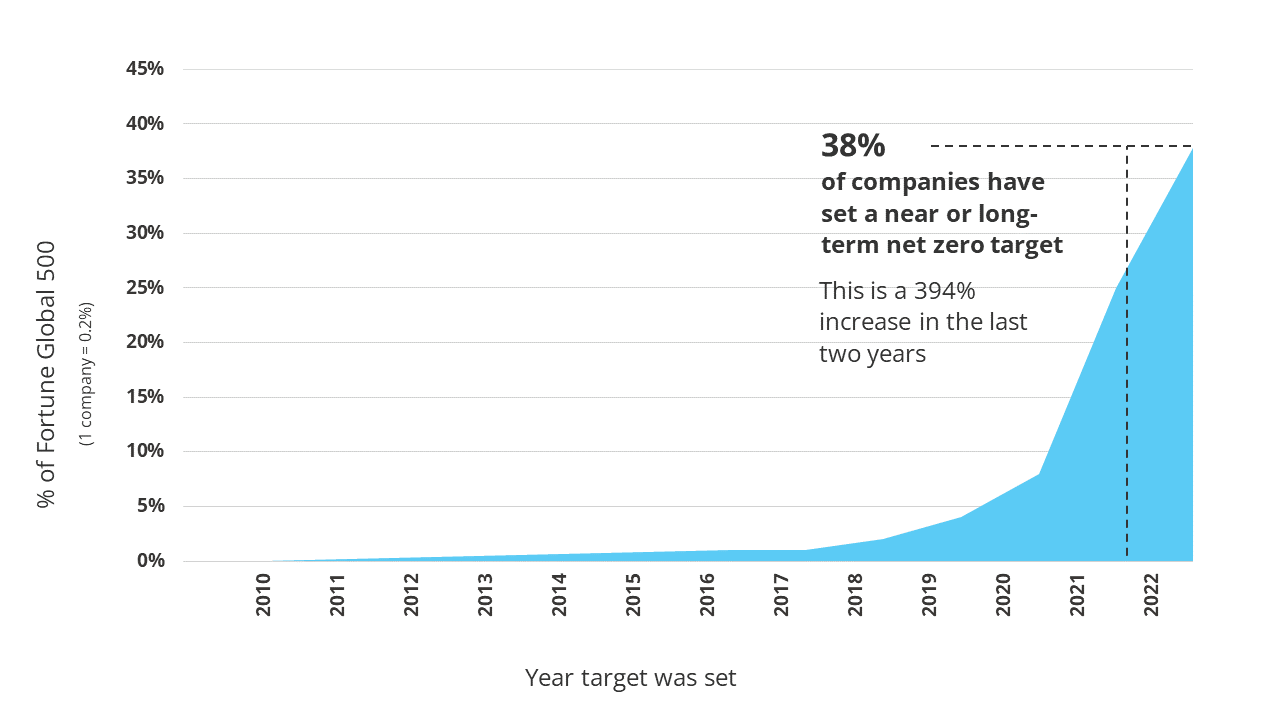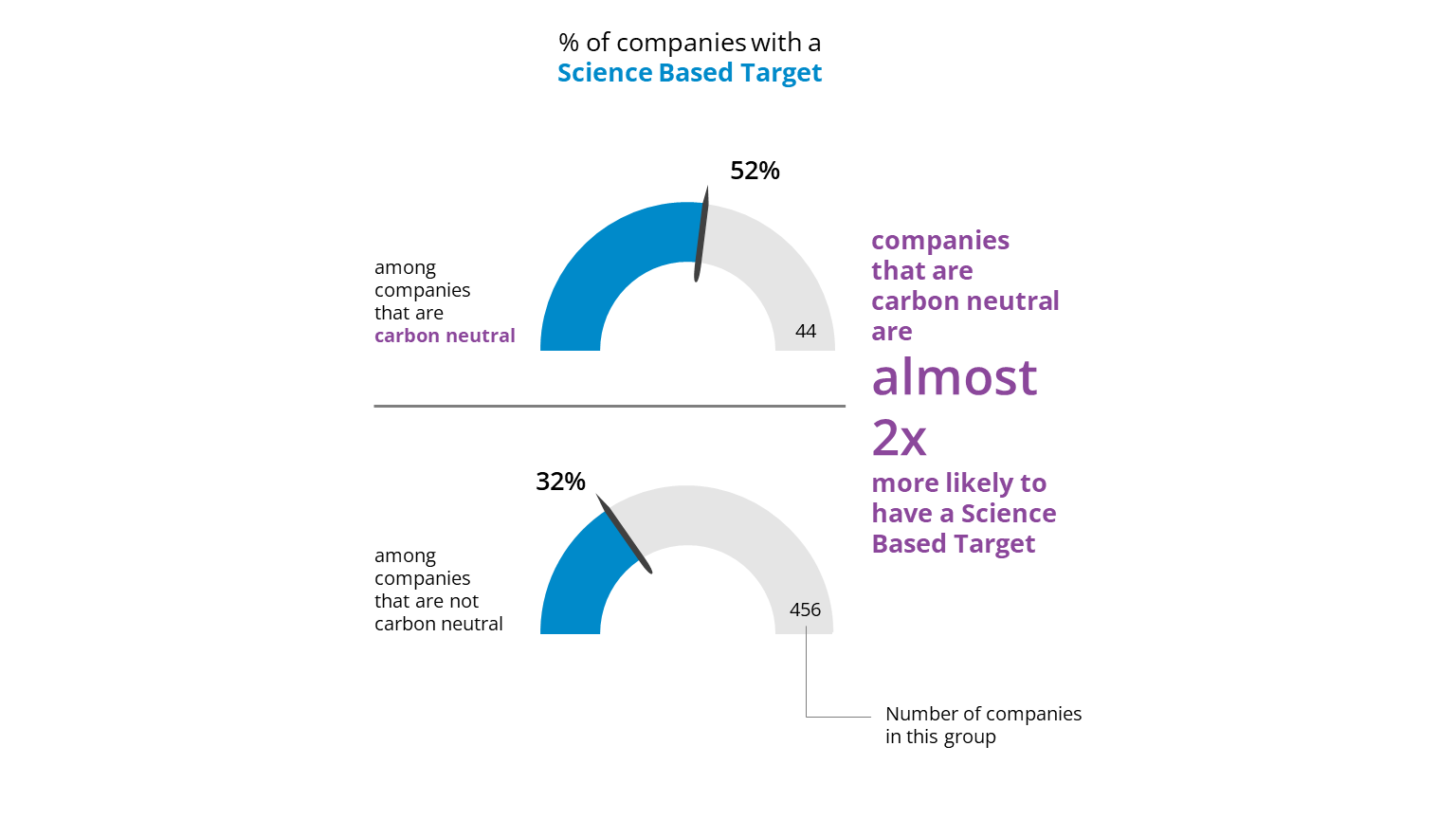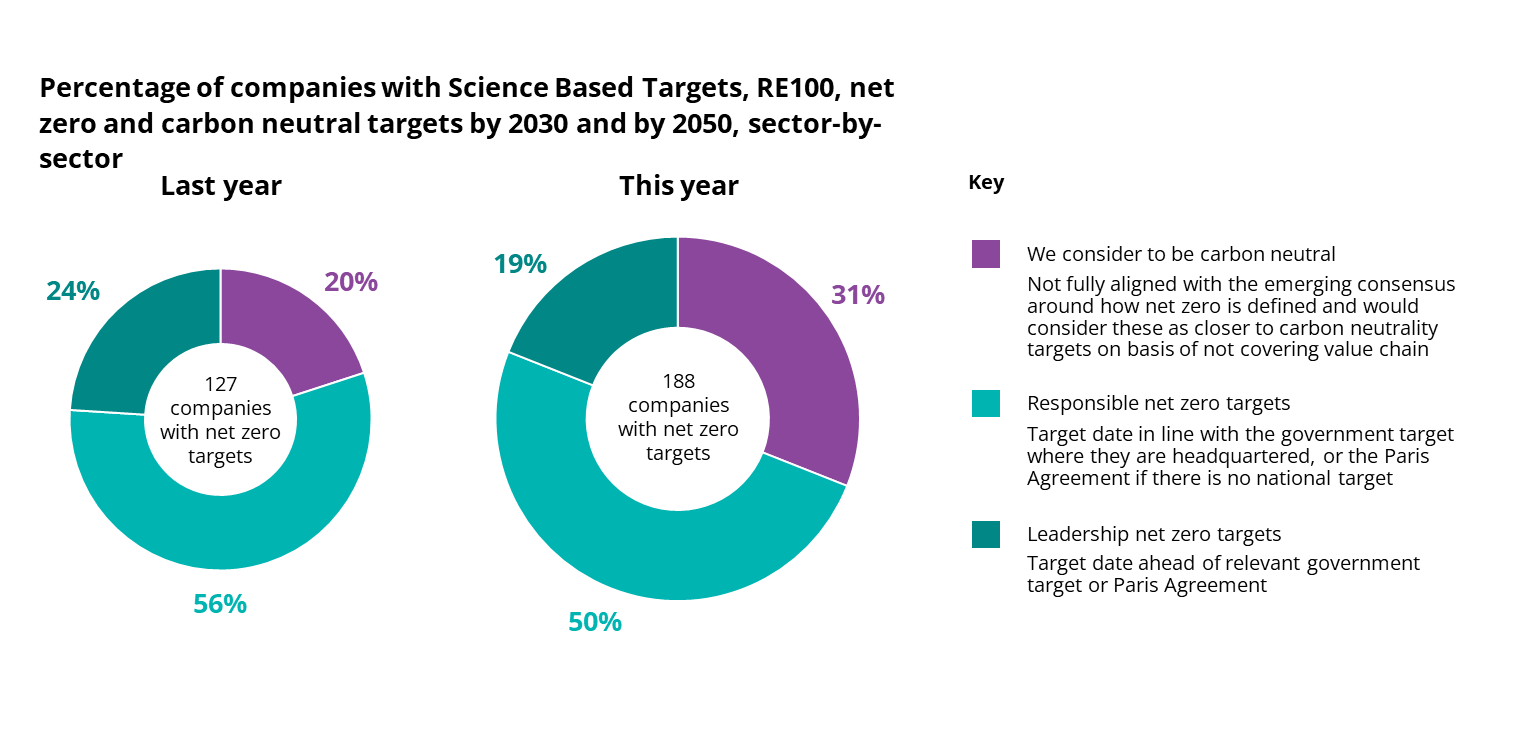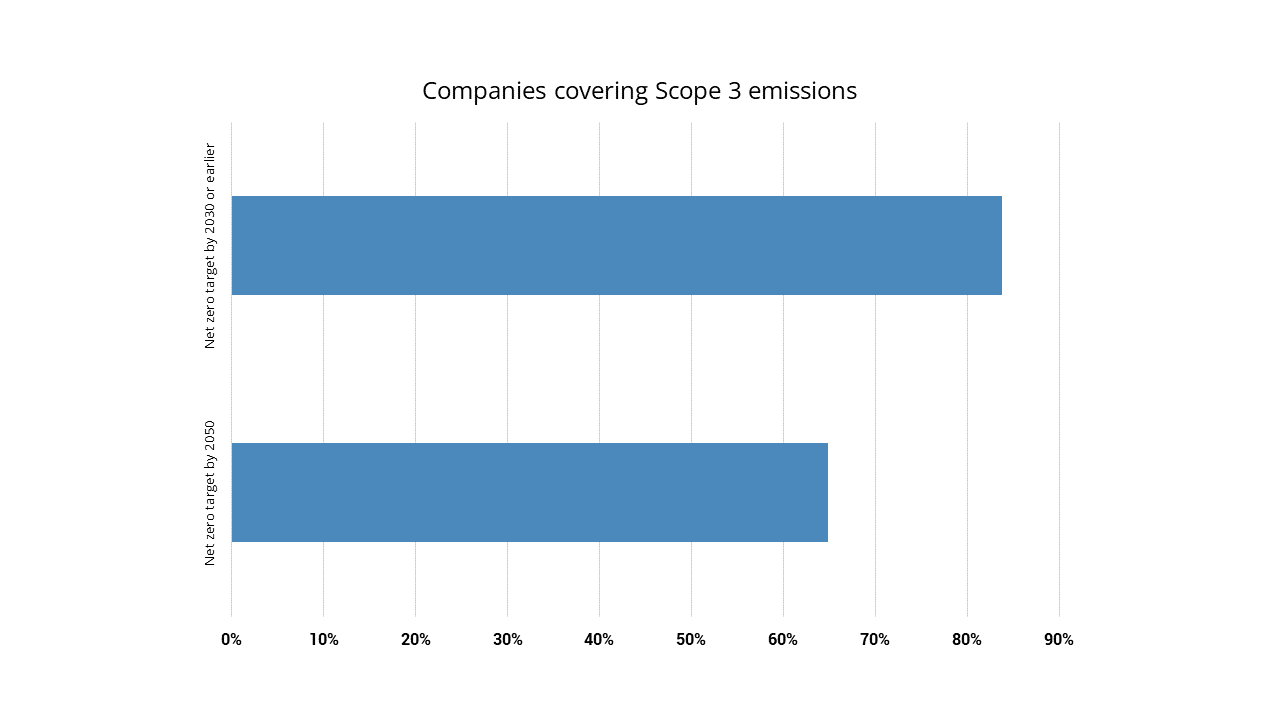Our fourth annual study to assess whether Fortune Global 500 companies have increased their climate actions and commitments

For this research, we defined net zero as those companies that self-identified as “net zero”, “zero net emissions”, “zero CO2 emissions”, “zero carbon”, “net zero carbon” or “neutralized residual emissions”. The number of companies with a net zero target has quintupled in two years: up to 38% (188 companies) of companies from 8% (38) of companies two years ago.

Companies that are net zero or have a target to be so by 2030 are almost twice as likely to have a Science-Based Target (54%) than companies that don’t have a net zero target (32%). This number is even higher when looking at 1.5°C aligned SBTs. Companies with a net zero target (23%) are four times more likely to have a near-term SBT, classified as 1.5°C above pre-industrial levels, than companies that don’t have a net zero target (5%).

We consider 31% of net zero targets to not be fully aligned with the emerging consensus around how net zero is defined and would regard these as closer to carbon neutral targets. We consider 50% as responsible net zero targets with a target date in line with the government target for net zero where they are headquartered, or the Paris Agreement if there is no national target. We consider 19% as leadership net zero targets, accelerating ahead of the national or Paris target. Net zero targets can’t be considered as corporate climate leadership if they are the law of the land.

Companies that have committed to a more ambitious decarbonization timeline are more likely to set value chain targets (Scopes 1, 2 and 3). When looking at companies that have a net zero target for 2030 or earlier, the number of companies whose target covers Scope 3 emissions jumps to 84% of companies (31/37), compared to 65% (98/151) among those with net zero targets beyond 2030. This is despite the fact that net zero is currently quite hard to achieve, with most low carbon and carbon removal technologies still high in price and limited in scale.
